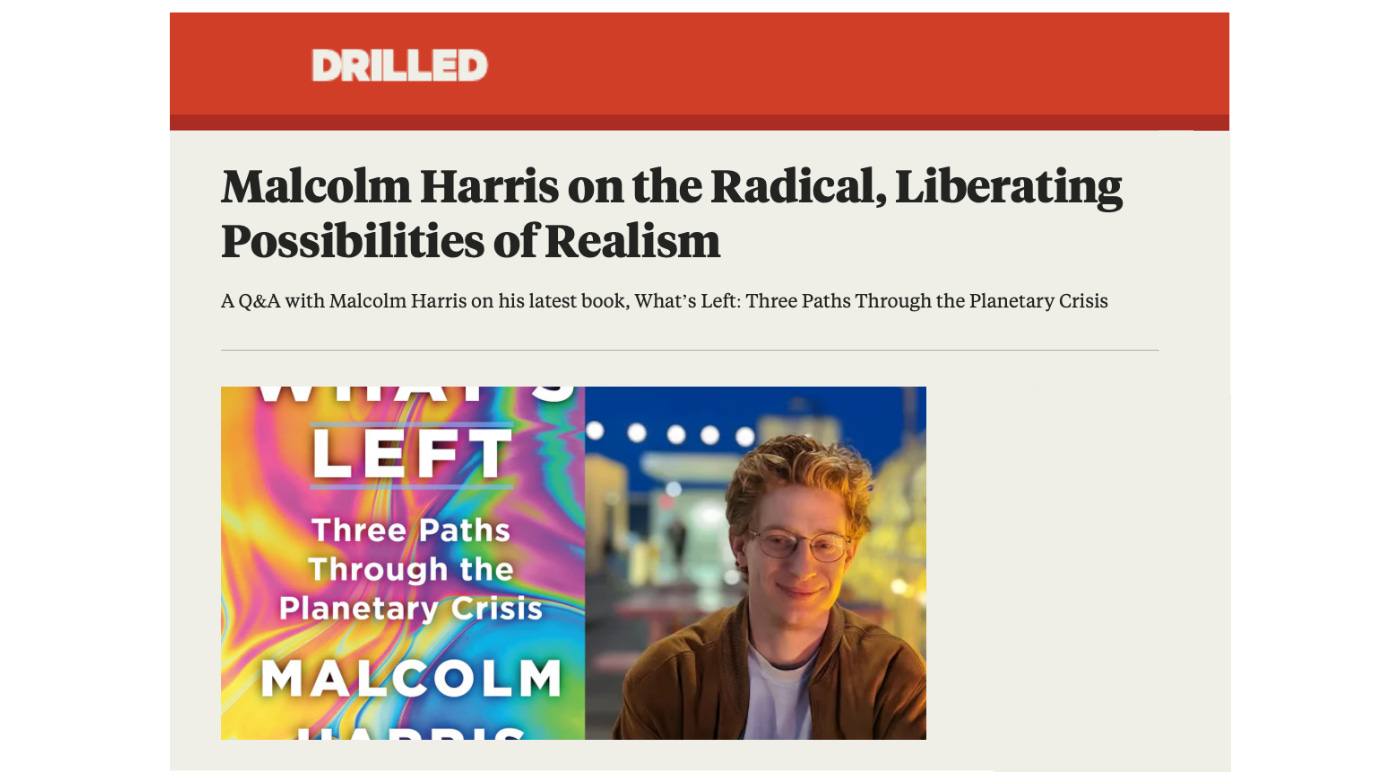You Don’t Get MAHA Without Pharma
New stories for The Atlantic and Drilled.
Readers of this newsletter might recall a story I wrote for The American Prospect last year titled “A Ponzi Scheme of Promises,” which examined the Business Roundtable’s 2019 “purpose of the corporation” statement five years after its publication.
The statement’s feel-good assurances about CEOs making a “fundamental commitment to all of our stakeholders” turned out to have nothing to do with how those CEOs ran their companies, so it was fitting that one of the drafters of the high-profile press release was Alex Gorsky, who was then the boss of the pharmaceutical giant Johnson & Johnson. “There were times when I felt like Thomas Jefferson,” Gorsky told The New York Times, describing his role corralling fellow chief executives into signing the statement.
During Gorsky’s decade at the helm of Johnson & Johnson, the corporate executive-turned-Founding Father often described his company in similarly grandiose terms: Johnson & Johnson was not merely a publicly traded conglomerate worth hundreds of billions of dollars, but a benevolent and purpose-driven force for good in the world. The investigative journalist Gardiner Harris’s new book, No More Tears: The Dark Secrets of Johnson & Johnson, suggests that Gorsky’s Jeffersonian self-image might be as misleading as Johnson & Johnson’s promise “to put the needs and well-being of the people we serve first.”1
That’s a long-winded way of introducing my latest contribution to The Atlantic: “How Johnson & Johnson Misled America.” The article is a review of Harris’s book, as well as the science journalist Charles Piller’s Doctored: Fraud, Arrogance, and Tragedy in the Quest to Cure Alzheimer’s.2
Here’s how the article starts:
In February, when Robert F. Kennedy Jr. was confirmed as the senior-most health-care official in the United States, many Americans were appalled. Kennedy has a long and lucrative history of promoting theories that are both unfounded (cellphones and Wi-Fi cause cancer) and dangerous (vaccines cause autism). If you’re seeking explanations for the popularity of Kennedy and the so-called health-freedom movement, it might be tempting to turn to individual rather than systemic culprits: online influencers spreading conspiracies, politicians exploiting public anxiety, tech bosses engineering outrage and radicalization, grifters pushing pseudo-scientific miracle cures.
Some of these forces have likely helped Kennedy ascend to the top of the Department of Health and Human Services. But to attribute the mainstreaming of previously fringe beliefs solely to such people is incomplete. It promotes the comforting conclusion that Kennedy fans were simply duped and manipulated, and dismisses a possibility with more unsettling implications: that the status quo of health care in America left some people so disillusioned and distrustful that they were willing to try anything else.
No More Tears and Doctored are replete with examples of some of the world’s most prestigious health-care companies deceiving regulators and lawmakers, manipulating data, suppressing inconvenient findings, pushing deceptive sales and marketing campaigns, and taking advantage of patients and their families desperate for any glimmer of hope.
One question my review tries to raise is whether those of us who are dismayed to find a vaccine denier running America’s top health-care agency should also consider that the critiques leveled (correctly) against RFK Jr. and his backers might ring more than a little true for the corporations that the so-called “Make America healthy again” movement, or MAHA, seeks to disrupt.
My aim is not to celebrate or exculpate MAHA, but rather to point out that some corporate profiteers have spent decades using tactics that are strikingly similar to those of the “health freedom” grifters who make money selling miracle cures on the internet.
The story concludes as follows:
To witness how Johnson & Johnson has pushed expensive and sometimes dangerous products is to understand why people might feel so betrayed by the health-care establishment that they’d roll the dice on a vaccine skeptic and conspiracy theorist. To discover that billions of dollars in Alzheimer’s funding, and numerous clinical trials that recruited vulnerable human beings and their families, could have been based on fraudulent research is to see that Americans are right to be angry. Long before Donald Trump and DOGE and RFK Jr. came for scientists and health-care workers, too much of their work was already being undermined by a system that prioritized profit over care.
Together, Doctored and No More Tears offer a sweeping indictment of the status quo. Neither the actions of companies such as Johnson & Johnson nor their influence over regulators and politicians created a movement like “Make America healthy again.” But they helped create space for it. In their relentless pursuit of profit, they helped break the faith that held dangerous alternatives at bay.
The journey to undo the damage and restore trust is a difficult and uncertain one. A good starting point might be to consider why people are so angry and distrustful, rather than blaming them for losing faith in a system that has made money off their pain for far too long.
You can read the full article here: “How Johnson & Johnson Misled America.” I’m grateful to the team at The Atlantic for editing and publishing it.
I’m also happy to share a Q&A that I taped recently with the writer and critic Malcolm Harris about his new book, What’s Left: Three Paths Through the Planetary Crisis.3 The book outlines three strategies still available for humanity to tackle the climate crisis—if humanity feels inclined to do so.
You can read a written and edited version of our conversation, and listen to the full audio, in the climate accountability publication Drilled: “Malcolm Harris on the Radical, Liberating Possibilities of Realism.”
Or search for “Drilled” wherever you get your podcasts (and then subscribe)!
https://www.penguinrandomhouse.com/books/647408/no-more-tears-by-gardiner-harris
https://www.simonandschuster.com/books/Doctored/Charles-Piller/9781668031247
https://www.hachettebookgroup.com/titles/malcolm-harris/whats-left/9780316577434



